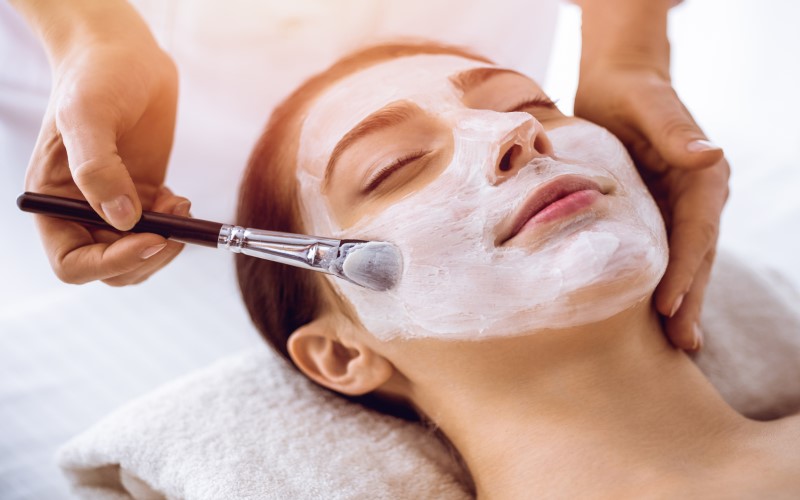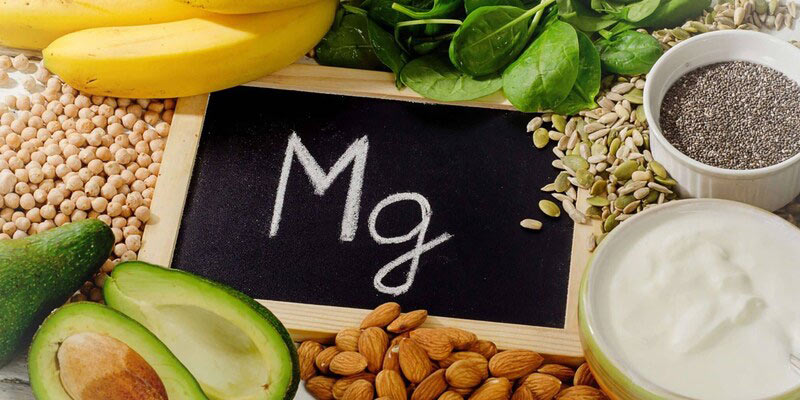Exploring the Effectiveness of Home Remedies for Skin Cleansing
Feb 11, 2024 By Nancy Miller
The journey often begins with effective cleansing for radiant and healthy skin. Our skin, constantly exposed to environmental pollutants and impurities, requires regular care to maintain its natural balance and vitality. As awareness grows regarding the importance of skincare, more individuals are exploring alternative methods beyond conventional commercial products.
Enter the realm of home remedies – a burgeoning trend where common kitchen ingredients are repurposed for skincare concoctions. But amidst the allure of natural solutions, a pressing question arises: do these DIY remedies truly cleanse and nourish the skin as promised? Let's unravel the truth behind the rise of home remedies for skin cleansing.
The Rise of Home Remedies for Skin Cleansing
In recent years, there has been a noticeable trend towards do-it-yourself (DIY) skincare solutions. People increasingly turn to ingredients in their kitchen cabinets, such as honey, yogurt, oatmeal, and lemon, to create homemade facial cleansers, masks, and scrubs. The allure of these home remedies lies in their natural origins and the belief that they offer effective cleansing without the use of harsh chemicals or additives commonly found in commercial skincare products.
The Effectiveness of Home Remedies for Skin Cleansing
The big question many people have is whether these homemade skincare concoctions work. While some home remedies may provide mild cleansing benefits, their effectiveness can vary greatly depending on the ingredients used, the individual's skin type, and the specific skin concerns being addressed. Ingredients like honey and yogurt contain natural antibacterial properties that can help cleanse the skin gently. Still, they may not be sufficient for deep cleansing or targeting more stubborn skin issues.

Understanding Different Skin Types
One important aspect to consider when exploring home remedies for skin cleansing is that not all skin is the same. People have different skin types, including oily, dry, combination, sensitive, and normal. What works wonders for one person's skin may not be suitable or effective for another. Understanding your skin type and specific needs is crucial before experimenting with home remedies or other skincare products.
Potential Risks and Considerations
While natural ingredients used in home remedies are generally considered safe, they are not without their risks. Certain ingredients, such as citrus fruits like lemon, can be acidic and may cause irritation or increased sensitivity to sunlight, especially for those with sensitive skin.
Harsh exfoliants like sugar or salt can damage the skin's protective barrier if used too aggressively. It's important to always patch-test home remedies on a small area of skin before applying them to your face and to use them in moderation to avoid potential adverse reactions.
In addition to the potential risks associated with using home remedies for skin cleansing, there are several other considerations to consider when incorporating natural ingredients into your skincare routine.
Allergic Reactions and Sensitivities
While many natural ingredients are generally well-tolerated by the skin, some individuals may still experience allergic reactions or sensitivities to certain compounds. For example, individuals with allergies to specific foods or plants should exercise caution when using home remedies that contain those ingredients. It's essential to read ingredient labels carefully and be aware of any known allergies or sensitivities before applying homemade skincare products to your face.
Lack of Standardization and Consistency
Unlike commercial skincare products, which undergo rigorous testing and quality control measures, home remedies lack standardization and consistency. The potency and effectiveness of homemade skincare solutions can vary significantly depending on ingredient quality, preparation methods, and storage conditions. As a result, achieving consistent results with home remedies may require experimentation and adjustment over time.
Incompatibility with Other Skincare Products
Another consideration when using home remedies is their compatibility with other skincare products you may already be using. Some ingredients commonly found in homemade skincare recipes may interact unfavorably with certain topical medications or skincare treatments. It's important to consult with a dermatologist or skincare professional before incorporating new ingredients into your routine, especially if you're already using prescription-strength acne treatments or anti-aging products.
Risk of Contamination and Spoilage
Because home remedies are often made with fresh, perishable ingredients, contamination and spoilage are risks over time. Improper storage or preparation methods can lead to bacterial growth or degradation of active compounds, rendering the homemade skincare product ineffective or even harmful to the skin. To minimize the risk of contamination, it's important to store homemade skincare products in clean, airtight containers and use them within a reasonable timeframe.
Lack of Scientific Evidence
While anecdotal evidence and traditional wisdom may support using certain home remedies for skin cleansing, many natural ingredients lack robust scientific evidence to substantiate their benefits. While some studies have explored the potential therapeutic properties of specific botanical extracts or herbal remedies, more research is needed to establish their efficacy and safety for skincare use. Without sufficient scientific evidence, it can be challenging to determine the true effectiveness of home remedies for achieving desired skincare outcomes.
Balancing Home Remedies with Commercial Products
The ongoing debate between home remedies and commercial skincare products often centers around efficacy, safety, and convenience. While home remedies offer a cost-effective and natural alternative to commercial products, the latter are often formulated with specific skincare concerns in mind and undergo rigorous testing for safety and effectiveness. Striking the right balance between home remedies and commercial skin care products can help individuals tailor their skincare routine to meet their unique needs and preferences.

Conclusion: Navigating the World of Home Remedies for Skin Cleansing
In conclusion, while home remedies can offer natural and cost-effective options for skin cleansing, their effectiveness and suitability can vary depending on individual factors such as skin type and specific skincare concerns. It's important to approach home remedies cautiously, understanding their limitations and potential risks and recognizing the value they can bring to a well-rounded skincare routine.
By balancing home remedies with commercial skincare products and prioritizing skin health and safety, individuals can create a personalized skincare regimen that promotes healthier, happier skin in the long run.

How long does it take to recover from a stroke

Best Foods High in Niacin: Essential for Energy and Health

How to Do a Side Plank Safely and What Are Its Benefits

Is Sunflower Oil Really Beneficial for Your Health?

Discovering the Power of Magnesium in Your Diet

Six Health Benefits of Litchi: Reasons to Include Them in Your Diet

Top 15 Dermatologist-Recommended Products for Acne Scars


